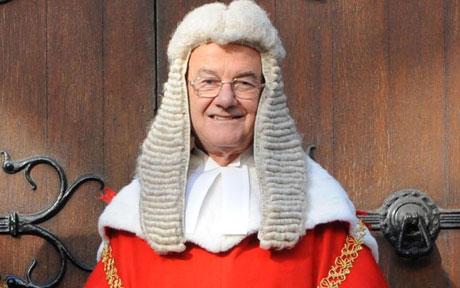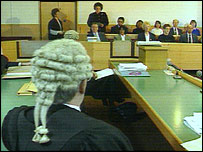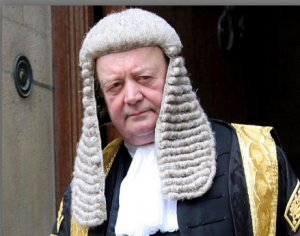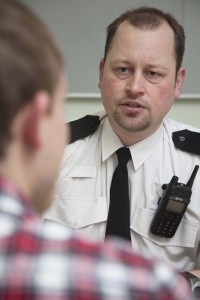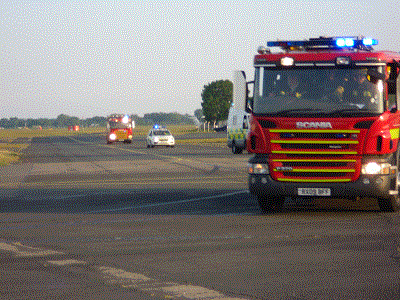Law Weblog
Legal training getting tough
Monday 19 July 2010 at 5:24 pm | In News | Post Comment Law firms expect 12% fewer vacancies for trainee solicitors this year, against an average of 6.9% across graduate recruiters. The number of places on the Legal Practice Course has increased by nearly 70%, to 14,482 while the number of training contracts has only risen by 20% to 5,809.Still some law firms pay the highest salaries to graduates according to the Association of Graduate Recruiters.
The compulsory minimum salary which law firms are required to pay is £18,590 in central London and £16,650 elsewhere. This was introduced to prevent exploitation and to promote diversity.
Last week, the government scrapped training grants for prospective legal aid lawyers. The Ministry of Justice said that while the legal aid training grant scheme was “a laudable idea”, its time had passed, and there are alternative routes into practice, for example through the paralegal route.
Solicitor LPC courses are turning out too many students who are paying around £12,000 for the yearlong course in London.
By contrast, Barristers’ training is changing, following the “Wood Report” in 2008. The Bar Standards Board is piloting an aptitude test for prospective bar vocational course students, which will test analytical and critical reasoning, as well as fluency in English, with the aim of ensuring that only those with a realistic chance of finding a pupillage start the course.
Prospective students hoping to join either branch of the legal profession can expect tough competition.
Lord Judge LCJ astonished at the power of the executive
Friday 16 July 2010 at 2:19 pm | In News | Post CommentThe Lord Chief Justice, Lord Judge in a speech at the Lord Mayor’s dinner for the judiciary made critical comments on the ease with which new laws can be made. He singled out the lack of proper scrutiny by Parliament which has resulted in a shift in the balance of power towards the executive.
He referred to “Henry VIII” clauses which astonished him. The Statute of Proclamations 1539 allowed the King’s (Henry VIII) proclamations to have the same force as Acts of Parliament and these frequently appear in legislation and allow ministers to make subsequent changes that would otherwise require parliamentary approval.
The example he gave was the Banking (Special Provisions) Act 2008, which grants to the Treasury power to disapply any other relevant statute bearing on the provisions of the 2008 Act or indeed any rule of law. Similar powers have also been granted by section 51 of the Constitutional Reform and Governance Act 2010. There had been at least 120 Henry VIII clauses in the last Parliamentary session alone, but no one is collecting data.
His speech is here
Jurors not allowed to research internet or social networking sites
Thursday 15 July 2010 at 3:46 pm | In News | Post Comment Lord Justice Judge Lord Justice Judge issued new guidance at the Court of Appeal, about jurors in criminal trials using the internet. Sitting with Lord Justice Hughes and Mr Justice Bean, he said: “We recommend a direction in which the principle is explained not in terms which imply that the judge is making a polite request, but that he is giving an order necessary for the fair conduct of the trial,” he said.He said using the material to help make decisions could result in a conviction being quashed; this includes research and discussions on social networking sites.
Lord Judge made his comments in a judgement relating to six appeals in which there had been allegations of jury irregularities.
“Research of this kind may affect their decision, whether consciously or unconsciously, yet at the same time neither side at trial will know what consideration might be entering into their deliberations and will therefore not be able to address arguments about it.
“This would represent a departure from the basic principle which requires that the defendant be tried on the evidence admitted and heard by them in court,” he said.
However, Lord Judge stressed that most trials continued without the inclusion of “extraneous material” and said: “Allegations of this kind rarely trouble the Court of Appeal.”
Prison works – prison doesn’t work
Thursday 15 July 2010 at 3:30 pm | In News | Post Comment The Lord Chancellor, Kenneth Clarke has re-opened a debate about prison numbers.Figures show that, between 1993 and 2010 the prison population in England and Wales rose from 44,500 to 85,000. During the same period, crime fell by a half from 18.5m offences. This appears to suggest that as crime fell by just under a half at the same time as the prison population grew by nearly a half, prison works. A similar trend has been seen in the United States.
However, Clarke argues that there is no “direct correlation” between prison numbers and crime rates. The fall in the crime rate during the 1990s, he suggested, was more down to his policies as chancellor than Michael Howard’s as home secretary.
A confidential strategy unit report drawn up in 2006 argues that 80% of the recent decrease in crime is due to economic factors. Crime fell again today with figures released showing a 9% fall.
Clarke’s argument is supported by other data. Between 1951 and 1971 the prison population doubled, while during the same period police-recorded crime trebled. Between 1971 and 1991 recorded crime trebled whilst prison numbers remained largely unchanged.
Monday 12 July 2010 at 10:15 pm | In News | Post Comment The Office for Judicial Complaints (OJC) inquiry into Judge Gerald Price QC was launched following allegations made in the News of the World about his conduct with a male prostitute.
The inquiry recommended the judge be sacked but Price resigned this afternoon after a failed appeal and before the disciplinary process was formally concluded.
It is unheard of for a judge to be sacked and this is the nearest to a dismissal that has occured in recent times.
Report in the Guardian
Significant rise in number of black people stopped and searched
Saturday 19 June 2010 at 9:02 am | In News | Post Comment The annual statistics on race and the criminal justice system reveal that black people are now seven times more likely to be stopped by the police than white people. This is a higher stop and search ratio than that recorded before the publication in 1999 of the inquiry report into the murder of the black teenager Stephen Lawrence. The report concluded that the overuse of stop and search had created significant mistrust in minority ethnic communities.The latest official figures show that the use of stop and search under section one of the Police and Criminal Evidence Act rose 10% in the past year to 1,142,763 searches. Of those, 15% were of black people, 9% of Asian people, 3% of mixed ethnicity and 1% were of Chinese background. Across the country the rate of stop and search per 1,000 population for black people compared with white, ranged from 9.1 times in Avon and Somerset to 0.7 in Cumbria and Durham, where the ratio of white people stopped was actually higher.
The justice ministry’s publication Race and the Criminal Justice System shows that black people continue to be disproportionately involved at nearly every stage of the process. The figures for 2008/09 show there were three times more arrests of black people than white people, based on per 1,000 population figures.
Report here
Jury trial in defamation cases
Friday 11 June 2010 at 5:57 am | In News | Post Comment The end of trial by jury in defamation cases came one step closer yesterday.The Court of Appeal upheld a ruling by Mr Justice Tugendhat last month that a libel action brought against Channel 4 by a former bodyguard to Michael Jackson, should be heard by a judge alone.
One factor was the issue of costs, around £3m.
The case raised important issues and was best be dealt with in a reasoned judgment which could be made public and appealed.
Today Ronald Thwaites QC said,
“At stake in this case is the future of trial by jury in defamation cases.
“If a judge can remove it, and be upheld, it is difficult to envisage any case where it can be successfully retained in the face of objection.
Lord Neuberger said that the Court of Appeal would explain its decision at a later date as the point at issue was one which merited a reasoned judgment.
Experimental chambers BarFutures set to close
Wednesday 9 June 2010 at 6:22 am | In News | 1 Comment The Law Socieny Gazette is reporting that the experimental virtual chambers BarFutures is to close its doors at the end of June after two years because of a ‘lack of appetite for change within the profession’.The alternative set was designed to meet the challenges posed by the Legal Services Act 2007 and give barristers a more cost-effective and time-efficient way to practise.
Rather than working in a traditional chambers, BarFutures provided management and marketing services and working accommodation in London and Manchester, to enable barristers to operate remotely and remain fully independent while benefiting from shared support.
It gave solicitors a more cost-effective and streamlined way to instruct barristers, using BarFutures’ own barristers, or the organisation’s nationwide network of affiliated chambers.
BarFutures director Ian Dodd told the Gazette:
‘When we set up two years ago we set some stretching financial targets. Despite achieving a turnover of £2m a year in our first 18 months and being able to cover all our costs, we couldn’t make the next step and failed to meet our targets.
More here
New Guidelines for Firefighters
Sunday 6 June 2010 at 12:14 pm | In News | Post CommentFire-fighters will be able to respond more effectively to dangerous situations, after the Health and Safety Executive issude a new policy statement which says that fire-fighters should not be prevented from doing their job of protecting the public. The fire service still has a duty under the Health and Safety at Work Act 1974 to protect their workers’ health and safety.
These health and safety duties are not absolute and each is qualified by the test of what is reasonably practicable. HSWA, therefore, does not require all risks to be eliminated, and HSE recognises that, even when all reasonably practicable precautions have been taken to deal with foreseeable risks, harm could still occur …
The new guidelines follow the findings of a Fatal Accident Inquiry in March where Alison Hume died following a fall of 40 feet down a disused mineshaft near Glasgow. Fire-fighters had been unable to rescue Alison Hume due to a Health and Safety memo which stated that their equipment was for saving themselves, not members of the public. Mrs Hume was eventually rescued by mountain rescue experts but died of a heart attack just before being brought to the surface.
HSE chair Judith Hackitt stated,
“Fire-fighters perform a unique and indispensable role. It is part of their job to intervene in dangerous situations to protect people and property. The law expects that they will themselves be protected as far as is reasonably practicable – but in fast moving situations they must exercise their judgement about what is reasonable and what is not.”
Full policy statement is here
Speak up if you wish to remain silent
Sunday 6 June 2010 at 7:35 am | In News | Post Comment The “Miranda warning” (Miranda v Arizona 1966, a rape case) is the US equivalent of the UK “Judges Rules” enshrined in PACE. It requires an investigator to inform a suspect that he has the right to remain silent.A Supreme Court decision this week overturned decades of legal precedent and police procedure by ruling that the burden is not on the police and prosecutors to make sure a defendant understands his rights. So from now on suspects must explicitly invoke their Miranda right to remain silent in order to avoid self-incrimination.
A Michigan man arrested for murder was read his Miranda rights but refused to sign a form stating he understood them, nor did he waive them. He remained silent until police asked him if he prayed for forgiveness for the fatal shooting. The man said “yes”, and that response was the basis for his murder conviction.
The Supreme Court upheld the conviction, saying the burden was on the defendant to unambiguously claim the right to silence.
In the words of one of the judges, “You have to speak up to stay silent”, the effect of the judgment is to “turn Miranda upside down.”
(UK police do not have to check that a person understands the meaning of the caution, but they frequently do)
Powered by WordPress with Pool theme design by Borja Fernandez.
Entries and comments feeds.
Valid XHTML and CSS. ^Top^

